第37章 The Enlightenments of Pagett, M.P.(5)
"But I am assured that experience of local self-government in your municipalities has been most satisfactory, and when once the principle is accepted in your centres, don't you know, it is bound to spread, and these important--ah'm people of yours would learn it like the rest. I see no difficulty at all," and the smooth lips closed with the complacent snap habitual to Pagett, M.P., the "man of cheerful yesterdays and confident to-morrows."
Orde looked at him with a dreary smile.
"The privilege of election has been most reluctantly withdrawn from scores of municipalities, others have had to be summarily suppressed, and, outside the Presidency towns, the actual work done has been badly performed. This is of less moment, perhaps-it only sends up the local death-rates-than the fact that the public interest in municipal elections, never very strong, has waned, and is waning, in spite of careful nursing on the part of Government servants."
"Can you explain this lack of interest?" said Pagett, putting aside the rest of Orde's remarks.
"You may find a ward of the key in the fact that only one in every thousand af our population can spell. Then they are infinitely more interested in religion and caste questions than in any sort of politics. When the business of mere existence is over, their minds are occupied by a series of interests, pleasures, rituals, superstitions, and the like, based on centuries of tradition and usage. You, perhaps, find it hard to conceive of people absolutely devoid of curiosity, to whom the book, the daily paper, and the printed speech are unknown, and you would describe their life as blank. That's a profound mistake. You are in another land, another century, down on the bed-rock of society, where the family merely, and not the community, is all-important. The average Oriental cannot be brought to look beyond his clan. His life, too, is naore complete and self-sufficing, and less sordid and low-thoughted than you might imagine. It is bovine and slow in some respects, but it is never empty. You and I are inclined to put the cart before the horse, and to forget that it is the man that is elemental, not the book.
'The corn and the cattle are all my care, And the rest is the will of God.'
Why should such folk look up from their immemorially appointed round of duty and interests to meddle with the unknown and fuss with voting-papers. How would you, atop of all your interests care to conduct even one-tenth of your life according to the manners and customs of the Papuans, let's say? That's what it comes to."
"But if they won't take the trouble to vote, why do you anticipate that Mohammedans, proprietors, and the rest would be crushed by majorities of them?"
Again Pagett disregarded the closing sentence.
"Because, though the landholders would not move a finger on any purely political question, they could be raised in dangerous excitement by religious hatreds. Already the first note of this has been sounded by the people who are trying to get up an agitation on the cow-killing question, and every year there is trouble over the Mohammedan Muharrum processions.
"But who looks after the popular rights, being thus unrepresented?"
"The Government of Hcr Majesty the Queen, Empress of India, in which, if the Congress promoters are to be believed, the people have an implicit trust; for the Congress circular, specially prepared for rustic comprehension, says the movement is 'for the remission of tax, the advancement of Hindnstan, and the strengthening of the British Govemment.' This paper is headed in large letters-'MAV THE PROSPEEITY OF THE EMPIRE OF INDIA ENDURE."'
"Really!" said Pagett, "that shows some cleverness. But there are things better worth imi'ation in our English methods of-er-political statement than this sort of amiable fraud."
"Anyhow," resumed Orde, "you perceive that not a word is said about elections and the elective principle, and the reticence of the Congress promoters here shows they are wise in their generation."
"But the elective principle must triumph in the end, and the little difficulties you seem to anticipate would give way on the introduction of a well-balanced scheme, capable of indefinite extension."
"But is it possible to devise a scheme which, always assuming that the people took any interest in it, without enormous expense, ruinous dislocation of the administ:ation and danger to the public peace, can satisfy the aspirations of Mr. Hume and his following, and yet safeguard the interests of the Mahommedans, the landed and wealthy classes, the Conservative Hindus, the Eurasians, Parsees, Sikhs, Rajputs, native Christians, domiciled Europeans and others, who are each important and powerful in their way?"
Pagett's attention, however, was diverted to the gate, where a group of cultivators stood in apparent hesitation.
"Here are the twelve Apostles, hy Jove -come straight out of Raffaele's cartoons," said the M.P., with the fresh appreciation of a newcomer.
Orde, loth to be interrupted, turned impatiently toward the villagers, and their leader, handing his long staff to one of his companions, advanced to the house.
"It is old Jelbo, the Lumherdar, or head-man of Pind Sharkot, and a very' intelligent man for a villager."
The Jat farmer had removed his shoes and stood smiling on the edge of the veranda. His strongly marked features glowed with russet bronze, and his bright eyes gleamed under deeply set brows, contracted by lifelong exposure to sunshine. His beard and moustache streaked with grey swept from bold cliffs of brow and cheek in the large sweeps one sees drawn by Michael Angelo, and strands of long black hair mingled with the irregularly piled wreaths and folds of his turban. The drapery of stout blue cotton cloth thrown over his broad shoulders and girt round his narrow loins, hung from his tall form in broadly sculptured folds, and he would have made a superb model for an artist in search of a patriarch.